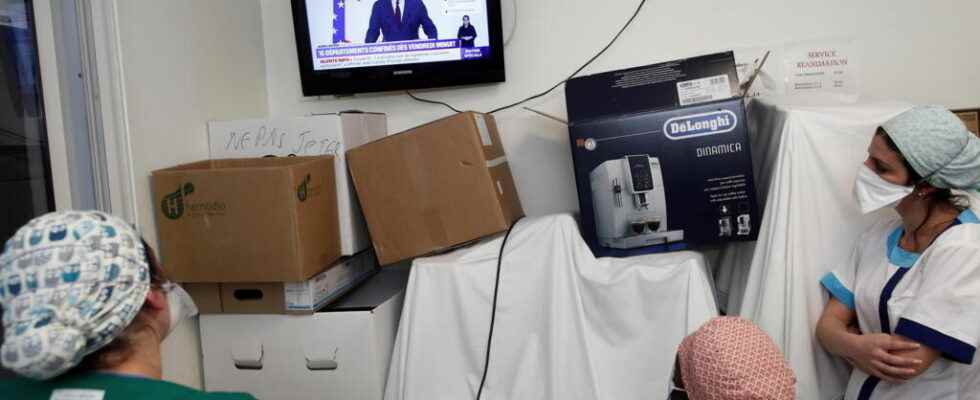More than 20% of working people in Ile-de-France are immigrant workers according to a statistical study by Insee (the National Institute of Statistics and Economic Studies) which establishes an X-ray of this workforce of origin foreign.
These employees overwhelmingly occupy unskilled jobs which are characterized by working conditions that are more restrictive than average in terms of physical effort, repetitive tasks or staggered hours.
Jobs that are essential to the proper functioning of society and for which employers are faced with recruitment difficulties, notes the Institute of Statistics. ” When we look at the jobs in which the share of immigrants is significant, we see jobs such as home helpers or housewives, construction workers too… in Ile-de-France, one in two cooks is an immigrant” , explains Mustapha Touahir, head of the regional service of the National Institute of Statistics and Economic Studies, joined by Sylvie Koffifrom the French department.
It is France that gets up early. Some were even on the front line during the health crisis caused by the Covid, a period during which 76% of cleaning agents were immigrants. Assets which are also concentrated in Ile-de-France, where they represent a little more than 20% of the population, twice as much as in the rest of metropolitan France, further specifies Mustapha Touahir. A workforce that is concentrated mainly in Seine-Saint-Denis, the poorest department of the metropolis. Nearly a third of the population there lives below the poverty line. Finally, half of these workers come from the African continent: West and Central Africa, Algeria or Morocco.
► Also to listen : The coronavirus pandemic and vulnerable families in Seine-Saint-Denis
A downgrading phenomenon
If this workforce is under-represented in the intermediate and higher professions, it is not necessarily a question of skills, according to INSEE. ” We have analyzed the level of education of working immigrants, and we have compared the generations with each other and overall we see that the younger generations are more educated than the older ones. A person who has a baccalaureate + 5 diploma, for example, can find a job as a worker or employee. This downgrading phenomenon is more pronounced among people of immigrant origin.”, continues Mr. Touahir. The obligation to have a European diploma or one recognized by the State to exercise certain professions, in particular medical, can for example be a handicap. In Ile-de-France, nearly 40,000 immigrant workers with a diploma attesting to at least five years of higher education are employed as workers or employees, notes INSEE. And only 56% of immigrants with a bachelor’s degree enter intermediate or higher professions. For non-immigrants, this rate is 80%, the report notes.
► Also to listen : In Seine-Saint-Denis, a discrimination observatory to fight against inequalities
